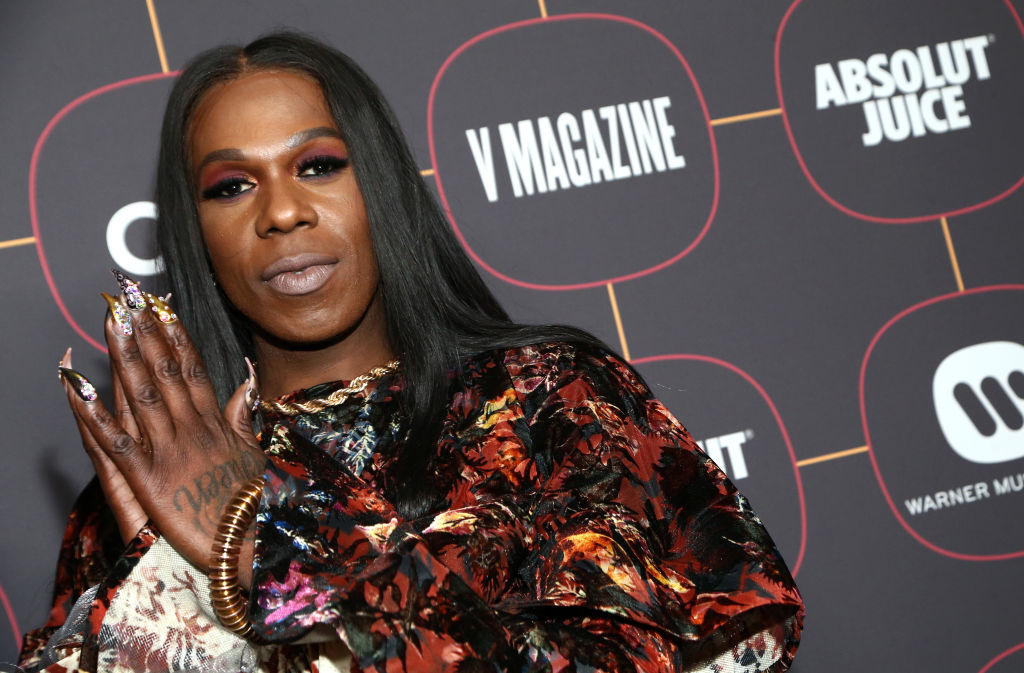Big Freedia explores New Orleans’ relationship with gun violence on ‘Freedia Got A Gun’
Bounce music artist Big Freedia takes a deeper look into the gun violence that plagues her native New Orleans.
New Orleans is the home of well-known cultural events such as Mardi Gras and ESSENCE Fest and holds the crown for a one-of-a-kind nightlife experience. Locals know, however, there is more to the Big Easy and all aspects may not make tourist blog posts. While the Instagram worthy NOLA exists, the locals have a more nuanced relationship with their streets, including a culture of gun violence impacting neighborhood safety.
Read More: Big Freedia teams up with Ben & Jerry’s for “Booty Bouncing Beignets” ice cream collab
Bounce music artist and community leader Big Freedia knows this more than most. On January 24, 2018, her life was changed forever when her brother became a victim of gun violence. According to Nola.com, 35-year-old Adam Ross was pronounced dead on scene after suffering a gunshot wound to the head near the corner of Magnolia Street and Martin Luther King Jr. Boulevard.

At the moment, Big Freedia canceled upcoming shows set for that weekend. In the long run, the New Orleans bred cultural icon channeled the grief, sadness, confusion, and anger into an eye-opening documentary. Freedia Got A Gun unpacks the gun culture sweeping New Orleans streets, the factors that empower the violent behavior, and solutions for a peaceful community.
Produced Emmy® award winners Fenton Bailey and Randy Barbato of World of Wonder, Freedia Got A Gun takes viewers into Big Freedia’s New Orleans, chronicling stories of residents all changed by gun violence in different ways.
Ross’s still-unsolved murder was unfortunately not Big Freedia’s first or only experience with gun violence. In the documentary, she shares how she was shot while dropping off a friend, in what could have ended in tragedy. The encounter provoked Big Freedia herself to carry a firearm for protection.
“All heard were gunshots. When the window shattered, I got hit with my first bullet. When I realized, I started ducking. I put my hand up to cover the back of my head, and thank God I did. The bullet got jammed in my wrist,” she described in the film. “If I had not put up my hand, I would’ve been shot in the back of my head.”
Read More: 9-year-old New Orleans boy killed in latest child shooting
Recently honored with the Award for Freedom at the 2020 Outfest film festival, Freedia Got A Gun expands beyond Big Freedia’s reality. She uses her platform to break-down the past, present, and future of New Orleans streets through outreach, with youth, educators, change advocates, inmates, and former criminals. Masculinity, Hurricane Katrina, lack of community, and the cycle of crime are all introduced to the conversation.
“We tried to put everything in there. We tried to touch base on a little bit of every situation, not just personal stuff for me, but stuff that can help the community, stuff that can happen on a national level. The local police didn’t want to be involved in the documentary,” Big Freedia said to theGrio. “We tried to highlight a lot of different things, that needed attention.”‘
A change in community dynamics throughout the years, and especially since Hurricane Katrina ravished New Orleans are cited by Big Freedia and other documentary participants as catalysts for violent reactions and behavior among New Orleans youth and young adults.
“It’s never been the same since Katrina,” Big Freedia remarked in the documentary.
Calvin Pep, a violence mediator who reformed his life from a criminal past to help mentor youth spiraling down a familiar path, shared in the film how he believes the hurricane changed the city’s youth.
“There’s an epidemiologist that says violence is a contagion, it acts like a disease [and], that it transfers from one person to the next person. When I look at the age range of young people who are committing gun violence and who are victims of gun violence, I think about the age they were when Hurricane Katrina hit, and the trauma that they had to suffer through that whole ordeal. One of the things that people in the community suffer from is post-traumatic stress disorder,” he said in the film.
“Those kids were 8, 9, 10 years old, Look at the age range now, 12-13 years later, these are the young people thats out here now cutting up.”
At just under an hour-and-a-half, the film uncovers pre and post-Katrina neighborhoods and offers solutions to what may seem like a never-ending problem. Perspectives from at-risk youth, educators, peace organizers, and victims of gun violence all join Big Freedia to share their existence.
“The most important thing I want people to take away is, we need to get back to spreading love and helping out and looking out for each other. No matter what walk of life you are, no matter which family you’re in, this is all going to happen at a community effort. And we all have to speak up and let our voices be heard and help one another. It affects us all no matter what,” Big Freedia said to theGrio.
Freedia Got A Gun premieres on Peacock on Thursday, October 15.
Have you subscribed to theGrio’s podcast “Dear Culture”? Download our newest episodes now!
TheGrio is now on Apple TV, Amazon Fire, and Roku. Download theGrio today!
More About:Entertainment






